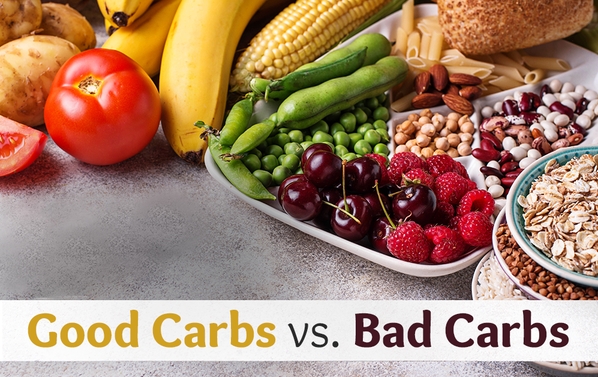Health and Wellness
Why You Want Good Carbs in Your Diet
If you're thinking about nixing carbs for health reasons, stop right there—you might miss out on some serious benefits. Not all carbs are created equal, and there are two main categories: simple and complex. Complex carbohydrates and simple carbohydrates are two types of macronutrients that play a crucial role in our diet. Understanding the differences between them can help you make informed choices about the foods you consume.
Complex carbohydrates are made up of long chains of sugar molecules commonly found in whole grains, fruits, vegetables, and legumes and they pack a more nutritious punch compared to simple carbs, which are made up of one or two sugar molecules commonly found in sugary items like soda, baked goods, some fruit juices, processed snacks, and cereal.
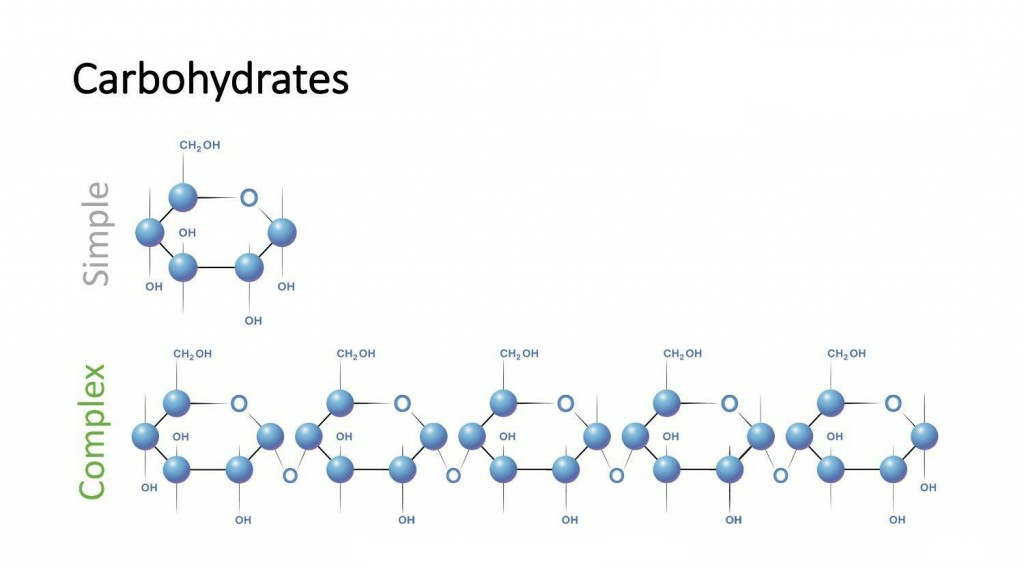
Complex carbs are considered "good carbs" because they take longer for the body to digest, avoiding the blood sugar spike you'd get with simple carbs, which are digested quickly by the body. This slower digestion rate helps to keep blood sugar levels stable and provides a steady source of energy for the body. Plus, they provide vitamins, minerals, and fiber that are important to your health.
While simple carbs (think: processed or refined sugars) like juice, ice cream, candy, and white bread are delish in moderation, most of your carb intake should consist of complex carbs like whole grains, legumes, and starchy veggies, dark green leafy vegetables, and foods high in fiber.
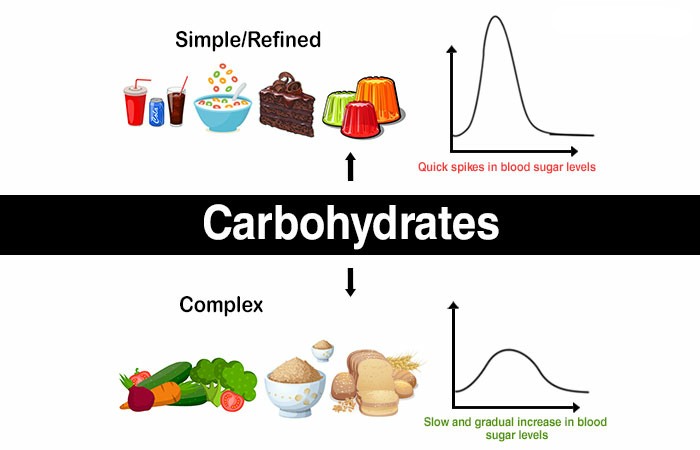
Consuming complex carbohydrates can have several health benefits. For instance, they can help improve digestion by promoting the growth of healthy gut bacteria. Additionally, they can help reduce inflammation in the body and lower the risk of chronic diseases such as heart disease and type 2 diabetes. Complex carbohydrates also provide a steady source of energy for the body, which can help improve physical stamina and reduce fatigue.
On the other hand, consuming too many simple carbohydrates can have negative health effects. Diets high in simple carbohydrates have been linked to an increased risk of obesity, type 2 diabetes, and heart disease. Additionally, consuming too many simple carbohydrates can cause a rapid spike in blood sugar levels, which can lead to feelings of fatigue and hunger shortly after eating.
A general rule is that if you are not feeling hungry for at least 4 hours after your last meal, then you know the foods you ate were great for your blood sugar regulation.
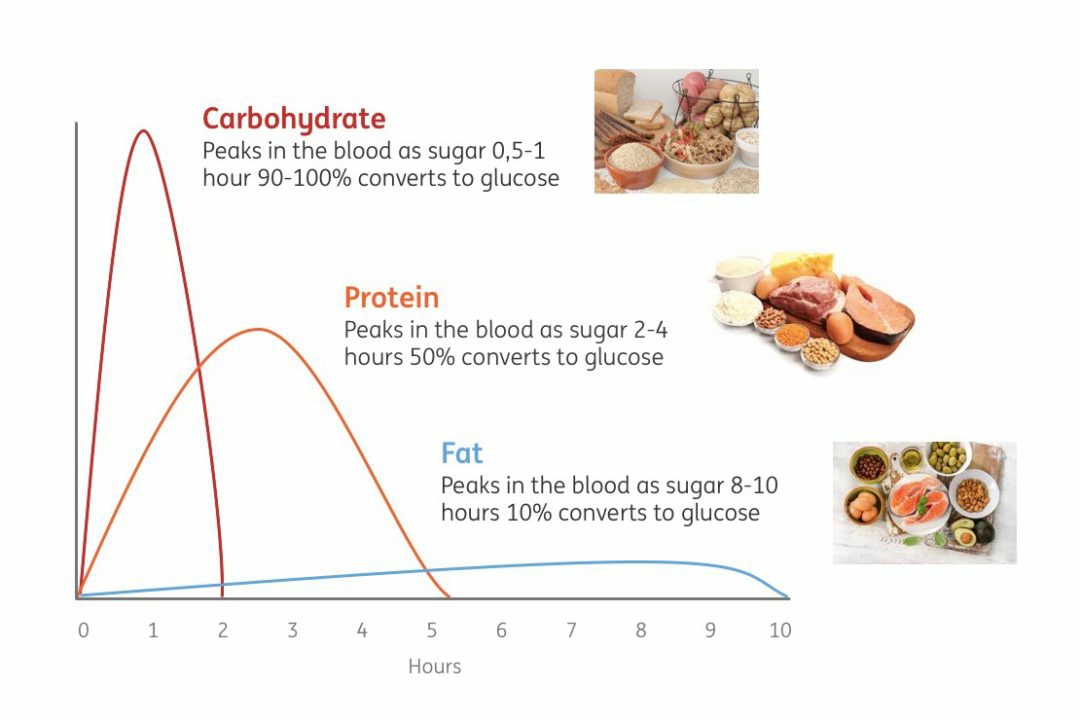
In conclusion, both complex and simple carbohydrates play an important role in our diet. While complex carbohydrates are generally considered to be healthier than simple carbohydrates, it's still important to consume them in moderation as part of a balanced diet.
By making informed choices about the foods you consume and maintaining a balanced diet that includes a variety of nutrient-rich foods, you can help support your overall health and well-being.
To make it super easy to add more ‘good carbs’ to your plate, keep this complex carbs list on hand for your next trip to the grocery store.
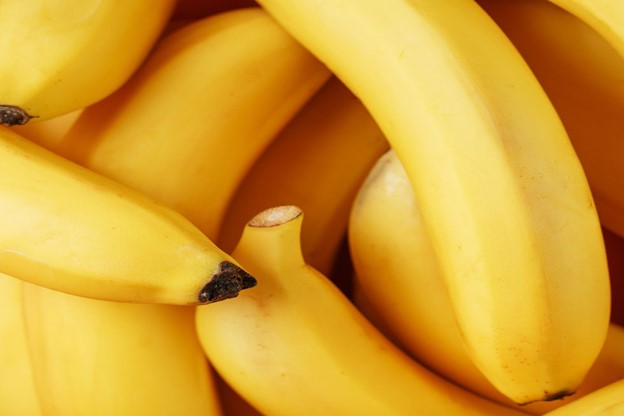
#1
Bananas
Bananas are made up of mostly complex carbohydrates, plus a healthy kick of vitamins and potassium. Yes, it contains natural sugar, but your body won't absorb it as quickly as it would, say, a candy bar, because of the fruit's high fiber count.
Per serving (1 medium): 105 calories, 0.4 g fat (0.1 g saturated), 27 g carbs, 14 g sugar, 1 mg sodium, 3.1 g fiber, 1.3 g protein.
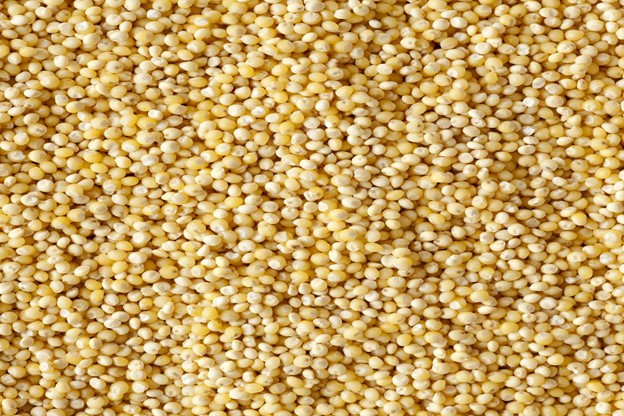
#2
Millet
Meet millet, which is a great go-to if your stomach is sensitive to gluten or you have celiac disease. This gluten-free grain is a rich source of magnesium, phosphorus, and potassium, not to mention protein.
Per serving (1 cup, cooked): 207 calories, 1.74 g fat (0.3 g saturated), 41.19 g carbs, 0.23 g sugar, 3 mg sodium, 2.3 g fiber, 6.11 g protein.
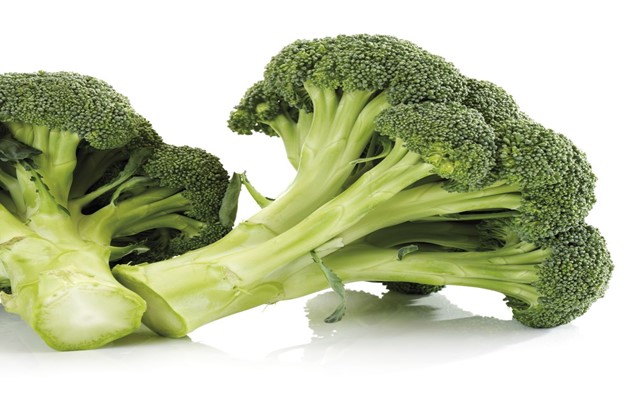
#3
Broccoli
You know these green guys are good for you, but did you know they're actually an ace source of complex carbs? The carbs primarily come from fiber, which is key for digestive health and regulating blood sugar levels.
Per serving (1 cup, chopped): 31 calories, 0.3 g fat (0 g saturated), 6 g carbs, 1.5 g sugar, 30 mg sodium, 2.4 g fiber, 2.6 g protein.
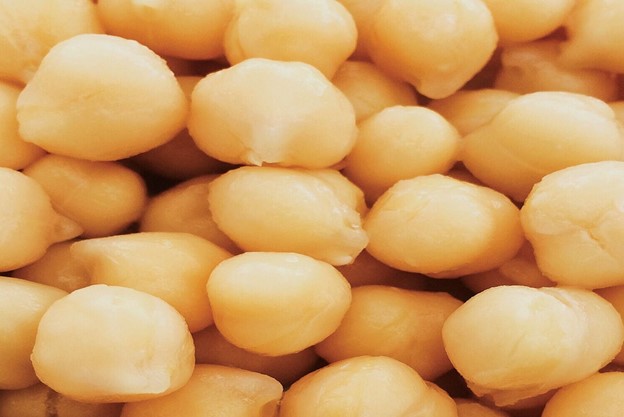
#4
Chickpeas
One cup of chickpeas packs an impressive 11 grams of protein and 10 grams of fiber (one-third of the minimum recommended daily fiber intake, which is about 30 grams). They’re also rich in calcium and phosphate, both of which are important for bone health.
Per serving (1 cup, cooked or canned): 270 calories, 4 g fat (0 g saturated), 45 g carbs, 8 g sugar, 11 mg sodium, 13 g fiber, 15 g protein.

#5
Carrots
Craving something crunchy? Get your fix with this colorful root veggie, which is a particularly good source of beta carotene, potassium, and antioxidants. We love 'em tucked into a veggie sandwich.
Per serving (1 medium): 25 calories, 0.2 g fat (0.02 g saturated), 5.8 g carbs, 2.9 g sugar, 42.1 mg sodium, 1.7 g fiber, 0.57 g protein.
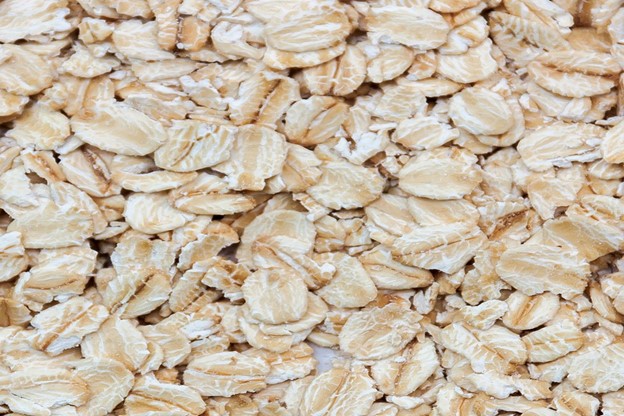
#6
Old-Fashioned Oats
Old-fashioned oats (also called rolled oats) are packed with magnesium, iron, folate, B vitamins, and other important nutrients. Regular intake of the soluble fiber in oats has also been shown to help reduce LDL cholesterol (a.k.a. the bad kind).
Per serving (1/2 cup, dry): 150 calories, 3 g fat (0 g saturated), 27 g carbs, 1 g sugar, 0 mg sodium, 4 g fiber, 5 g protein.
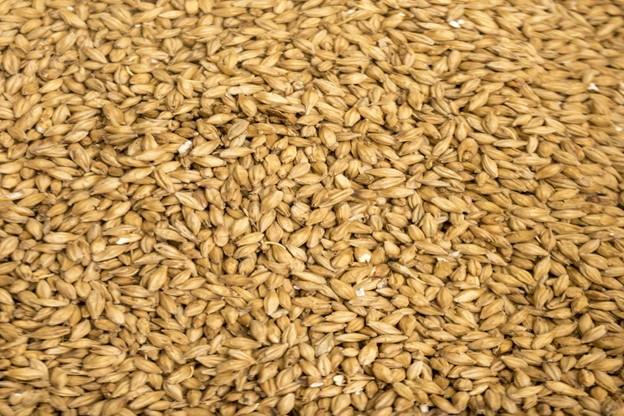
#7
Barley
Don’t dismiss this chewy, slightly nutty grain. One cup of cooked barley packs six grams of fiber, which is essential for good gut health and may help lower cholesterol levels too, boosting cardiovascular health.
Per serving (1 cup, cooked pearled): 193 calories, 0.69 g fat (0.15 g saturated), 44.3 g carbs, 0.44 g sugar, 5 mg sodium, 6 g fiber, 3.55 g protein.
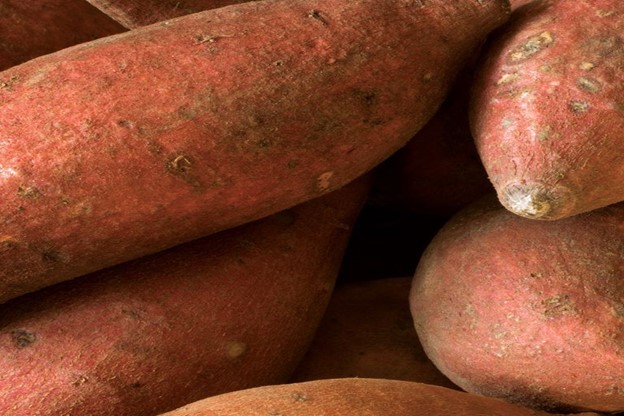
#8
Sweet Potatoes
Although they’re as sweet as their name suggests, the sugar in sweet potatoes is released slowly into your bloodstream, thanks to the fiber that comes along with it. The starchy root vegetable is also high in vitamin C, which helps boost immunity, and beta carotene, which is linked to reduced risk of heart disease and certain cancers.
Per serving (1 small, sweet potato, 130 g, raw): 112 calories, 0 g fat (0 g saturated), 26 g carbs, 5 g sugar, 72 mg sodium, 4 g fiber, 2 g protein.
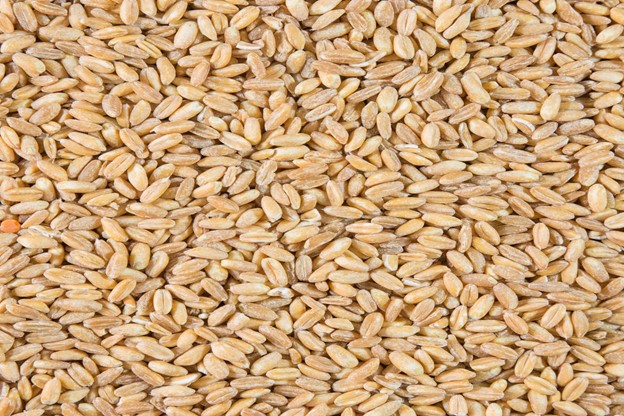
#9
Spelt
Spelt is an ancient grain that delivers more than just a healthy serving of complex carbs. One cup of cooked spelt has 7.6 grams of fiber and 10.67 grams of protein, making it a well-balanced choice. Plus, it has higher amounts of iron, zinc, magnesium, and copper compared to wheat flour and provides roughly one-third of your recommended daily value of phosphorus, a key bone-building mineral.
Per serving (1 cup, cooked): 246 calories, 1.65 g fat, 51.29 g carbs, 10 mg sodium, 7.6 g fiber, 10.67 g protein.
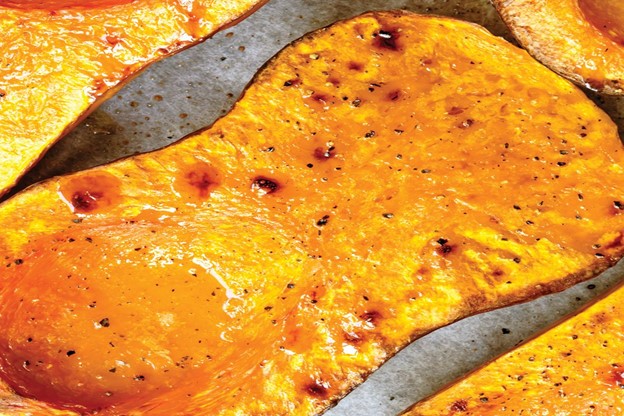
#10
Butternut squash
Because butternut squash is starchy but relatively low in calories, it can be a great swap for more calorie-dense potatoes and sweet potatoes. It’s also high in vitamin E, which promotes healthy skin.
Per serving (1 cup, cubed, raw): 63 calories, 0 g fat (0 g saturated), 16 g carbs, 3 g sugar, 6 mg sodium, 3 g fiber, 1 g protein.
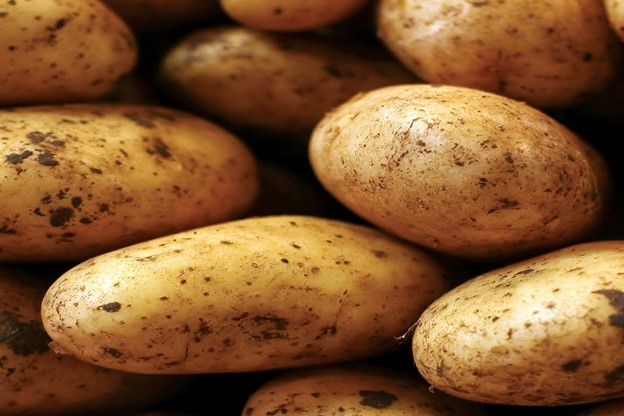
#11
Potatoes
Regular old white potatoes are really good for you, too! One medium potato has more potassium than a banana, which makes them great for managing blood pressure. Plus, they offer resistant starch, which is great for your gut health.
Per serving (1 small potato, 148 g, raw): 110 calories, 0 g fat (0 g saturated), 26 g carbs, 1 g sugar, 0 g sodium, 1 g sugar, 3 g protein.
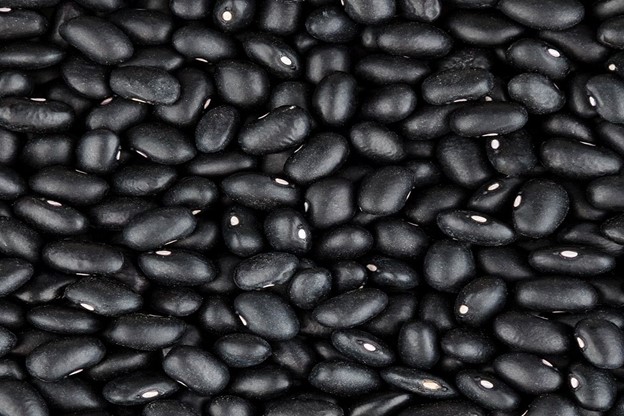
#12
Black Beans
Beans are a good source of protein and fiber, the two key nutrients that promote satiety. They help you feel full longer. Beans are also a cheap and easy substitute for animal protein. For all you plant-based folks out there!
Per serving (1 cup, cooked or canned): 227 calories, 1 g fat (0 g saturated), 41 g carbs, 1 g sugar, 2 mg sodium, 15 g fiber, 15 g protein.
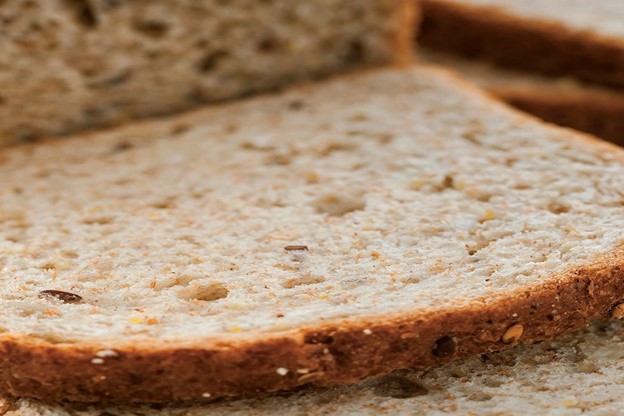
#13
Whole-Grain Bread
There’s no reason to give up sandwiches in favor of lettuce wraps, but it’s worth double-checking labels to make sure you’re buying bread made with 100 percent whole grains (and not a mix of wheats and additives). Not only can the fiber in whole grains help you maintain a healthy weight, but whole grains have also been shown to lower your risk of type 2 diabetes, stroke, and heart disease. If you’re following a gluten-free diet, or simply prefer to avoid eating wheat (better to avoid!), sourdough may be healthier for you than other types of breads. It contains fewer calories than regular bread and has less fat and more protein than white bread.
Per serving (1 slice): 81 calories, 1 g fat (0 g saturated), 14 g carbs, 1 g sugar, 146 mg sodium, 2 g fiber, 4 g protein.
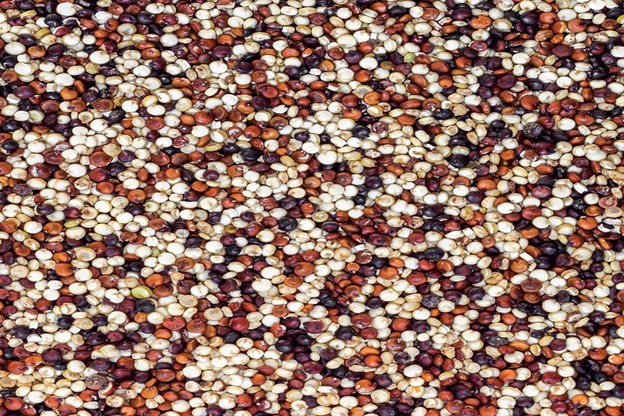
#14
Quinoa
While it’s technically a seed, not a grain (making it naturally gluten-free), quinoa comes with the same heart-healthy benefits as other whole grains, and works the same way in recipes like stir-fries, salads, and grain bowls.
Per serving (1/4 cup, dry): 156 calories, 3 g fat (0 g saturated), 27 g carbs, 1 g sugar, 2 mg sodium, 3 g fiber, 6 g protein.
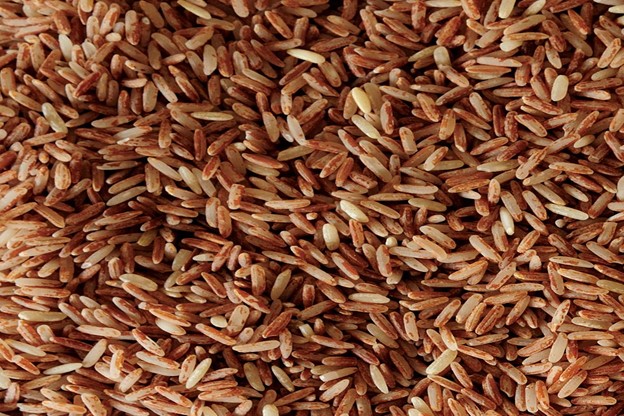
#15
Brown Rice
Brown rice contains the germ, bran, and endosperm of the grain, which means it’s got more fiber, protein, and nutrients than white rice (which is just the endosperm, with the germ and bran removed). Its high fiber content makes it great for satiety and weight maintenance, and it’s got a slew of other important nutrients, such as iron, zinc, selenium, and B vitamins. For less arsenic exposure (toxic heavy metal) you may go with Basmati rice which comes in brown or white varieties and is known for its nutty flavor and pleasant aroma.
Per serving (1/4 cup, dry): 150 calories, 1.5 g fat (0 g saturated), 32 g carbs, 0 g sugar, 0 mg sodium, 2 g fiber, 3 g protein.
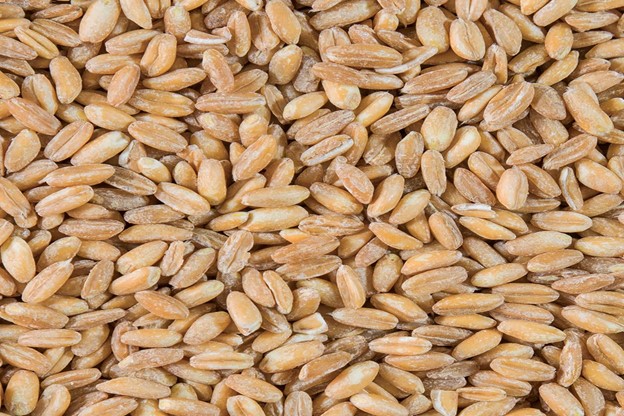
#16
Farro
Like quinoa, this nutty grain has loads of heart-healthy benefits, including reduced risk of type 2 diabetes, stroke, and heart disease. It’s also slightly higher in protein and fiber than most other whole grains (making it another great food for weight loss). One thing to note: Farro is a type of wheat, so it’s not gluten-free.
Per serving (1/4 cup, dry): 160 calories, 1 g fat (0 g saturated) 33 g carbs, 1 g sugar, 10 mg sodium, 3 g fiber, 5 g protein.
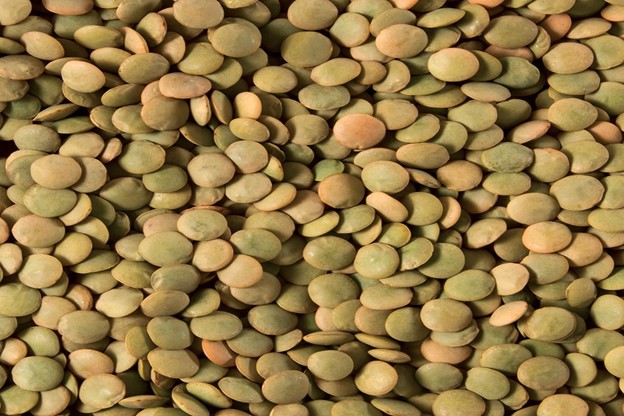
#17
Lentils
Low in fat and high in protein and healthy carbs, lentils make for a cheap, filling alternative to meat in simple meals. One cup of lentils contains 18 grams of protein and 16 grams of fiber, so these inexpensive legumes are guaranteed to fill you up and keep you satisfied.
Per serving (1 cup, cooked): 230 calories, 1 g fat, 40 g carbs, 4 g sugar, 4 mg sodium, 16 g fiber, 18 g protein.
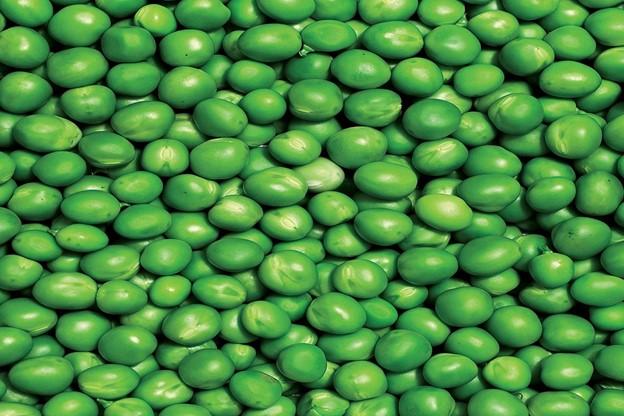
#18
Green Peas
They’re high in fiber, plus they contain a good amount of vitamin A, vitamin C, vitamin K, and folate.
Per serving (100 g): 81 calories, 0 g fat (0 g saturated), 14 g carbs, 6 g sugar, 5 mg sodium, 6 g fiber, 5 g protein.
Body-Field Scan
Ready to find out what's impacting your energy levels by using our bioenergetic scanning technology. Check out your body’s energy with a Body-Field scan and gain deeper insight into your holographic self with our certified Bioenergetic Practitioner. For an In-Clinic visit click here, or, for a Telehealth (remote) session click here.
We offer a completely new, alternative and bioenergetic health care approach based on 21st century science, technology and quantum physics with personalized, holistic therapy solutions such as, NES body-field scan & therapy, miHealth biofeedback, PEMF, Scalar Wave, Rife and Vibroacoustic (VAT) healing modalities that can restore optimal health and well-being throughout the body, mind and spirit in the most natural way. Let us help you restore your health and energy!




